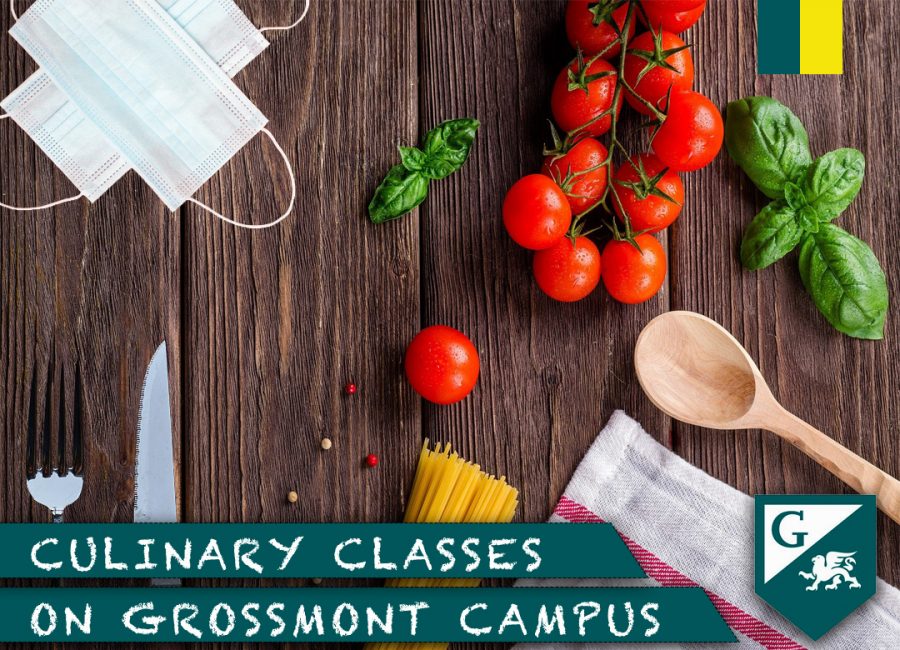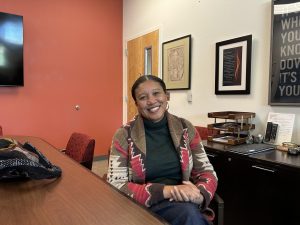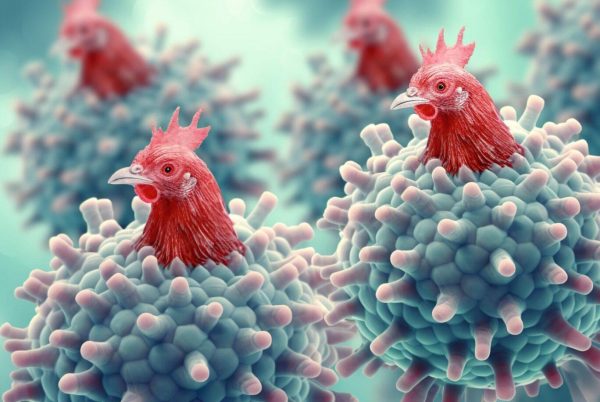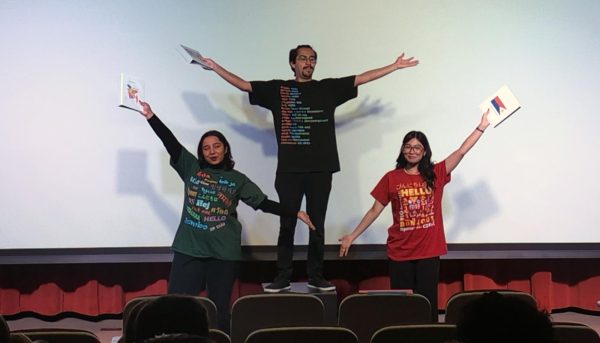Chefs Don’t Boil Under Pressure
Grossmont College’s Culinary Arts program continues to prove how much its chefs can adapt to growing changes due to COVID-19.
March 24, 2021
It may not be Hell’s Kitchen, but the pressure is on when cooking during a pandemic.
The culinary curriculum has continued to evolve through the past year. What used to be a long time spent in the kitchen has shortened into an online form of learning. Students will now attend lectures through Zoom instead of a classroom setting, while the cooking portion of the course is done in a classroom held as a lab.
There are so many issues when it comes to letting students back onto campus, but when it comes to this program, it’s like any other day. “Sanitation is so ingrained in our program as food service professionals, that part isn’t really different,” said Chef Jojo Rossi, a faculty instructor.
Personal protective equipment has been a big change as the use of masks has limited the number of people using tools to mitigate the risk of spreading germs. Students now have to lift their masks and social distance when they are tasting their food.
“With cooking comes good sanitation, and that is probably another reason why it was a little easier for us to adjust because we already have sanitizing buckets and solutions with towels for every station, and hand sinks” said Chef James Foran, Culinary Arts coordinator and chair.
One of the biggest parts of this program is proper sanitation, which is there to prevent people from getting sick. Most of the work needed to keep a classroom clean enough for in-person learning is already taken care of. One measure taken in class includes tasting things a little less often.
Grossmont students have shown they adapt well under pressure and react on the fly. The culinary field has always been filled with obstacles and struggles; chefs never know what could happen in the kitchen and must keep their heads on a swivel and deal with problems as they happen. COVID-19 is just another obstacle to overcome for these students.
A downside of COVID-19 was the need to shrink class sizes, but the upside was it gave students more room to work with in the kitchen.
“Surprisingly, I thought it was going to be more of a challenge.” Foran said, “I thought it was going to be really having to hold their hand with learning Canvas, adapting to that, but to be quite honest, they adapted really quickly.”
This program was made for this kind of pressure and just had to adjust accordingly.
According to Rossi, due to the pandemic, restaurants took a big hit when it came to their workers. Many cooks have fled the industry and the call to arms have led them to Grossmont as one of the last places to learn culinary skills. What was seen before as a last resort due to the want for someone with experience has changed into almost the only resort. Students now have a much better chance finding work with so many people fleeing kitchens across San Diego.
Even through the continuing struggle of learning through a pandemic, this program continues to be one of the classes that can adapt really well to what looks like an ongoing global issue. As one of the few colleges in San Diego offering Culinary Arts, Grossmont’s Culinary Arts program isn’t going anywhere anytime soon.
If you can’t stand the heat, you probably didn’t go through Grossmont’s Culinary Arts program.














